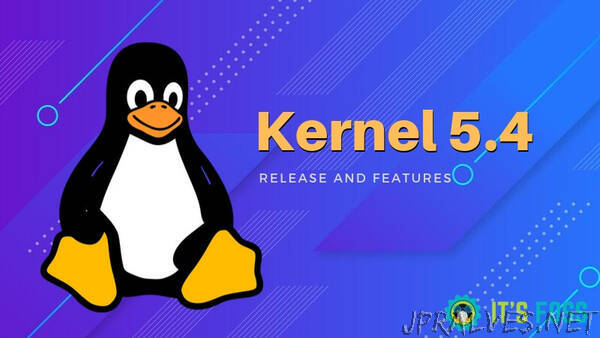
“Linux Kernel 5.4 is the last major stable kernel release of the year 2019. This new release has some big changes that will (positively) impact both manufacturers and end-users.
Linux Kernel 5.4 Release Features
Even though there are some significant improvements, Linus Torvalds gave an overview of what’s in this update in the announcement post:
What little there is here is mostly some networking updates (mix of network drivers and core networking), and some minor GPU driver updates. Other than that it’s a small collection of random other things all over. The appended shortlog is small enough that you might as well just scroll through it.
In addition to this, he also mentioned the work for Linux Kernel 5.5:
Not a lot happened this last week, which is just how I like it. And as expected, most of the pull requests I got were for the 5.5 merge window, which I’ll obviously start working through tomorrow.
Now that we have an overview from the official announcement, let us take a look at some of the key changes that come with this kernel update.
Linux Kernel Lockdown
The lockdown feature aims to further strengthen Linux security by “restricting access to kernel features that may allow arbitrary code execution via code supplied by userland processes”.
In simple words, even the root account cannot modify the kernel code. This will help in cases where a root account is compromised, the rest of the system won’t be easy to compromise especially on kernel level. In even simpler words, it enhances the Linux security.
There are two lockdown modes: integrity and confidentiality.
In integrity lockdown mode, kernel features that allow userland to modify the running kernel are disabled.
In confidentiality mode, kernel features that allow userland to extract confidential information from the kernel are also disabled.
This lockdown feature is intended for device manufacturer and Linux distributions (specially the enterprise-oriented ones). By default, the lockdown module will be turned off.
exFAT support
Microsoft’s FAT filesystem doesn’t allow transferring files bigger than 4GB. To overcome this limit, Microsoft created exFAT filesystem. With this, you could now format a USB drive in exFAT and transfer bigger files.
Until now, Linux didn’t support exFAT natively. You have to install additional libraries to use exFAT filesystem. This is changing in the new release.
Microsoft recently open sourced the exFAT filesystem. Kernel 5.4 will now bring native exFAT support to Linux.
AMD Radeon Graphics Performance Improvement
Not just limited to Radeon graphics in general – but the new kernel update aims to improve the graphics support and performance.
For Radeon, the AMDGPU DRM driver is something that helps make a significant difference in the performance while adding support for next year’s AMD APUs (Dali & Renoir).
You can also see this improvement in action on Phoronix’s initial tests with early 5.4 kernel builds.
Other features in kernel 5.4
It is worth noting that the new Linux Kernel 5.4 also adds support for new hardware and some other improvements.
Here are some other major features in the kernel:
- Qualcomm Snapdragon 855 SoC support
- Support for newer Intel GPUs and minor GPU improvements overall
- Ability to run mainline kernels on Arm consumer laptops
- Intel Icelake Thunderbolt support
- Support For The FlySky FS-iA6B drone receiver
- VirtIO-FS for sharing files/folders between the host and guests operating systems while using virtual machines
- Fixes for Windows gaming via Wine/Proton
- Improved FSCRYPT support
- There are several fixes and improvements around existing filesystems (like Btrfs) and hardware. You can see other changes in kernel 5.4 in the announcement post.
Getting Linux Kernel 5.4
It depends upon your Linux distribution when they start rolling it out. You may manually install it by yourself but I wouldn’t advise it.”
